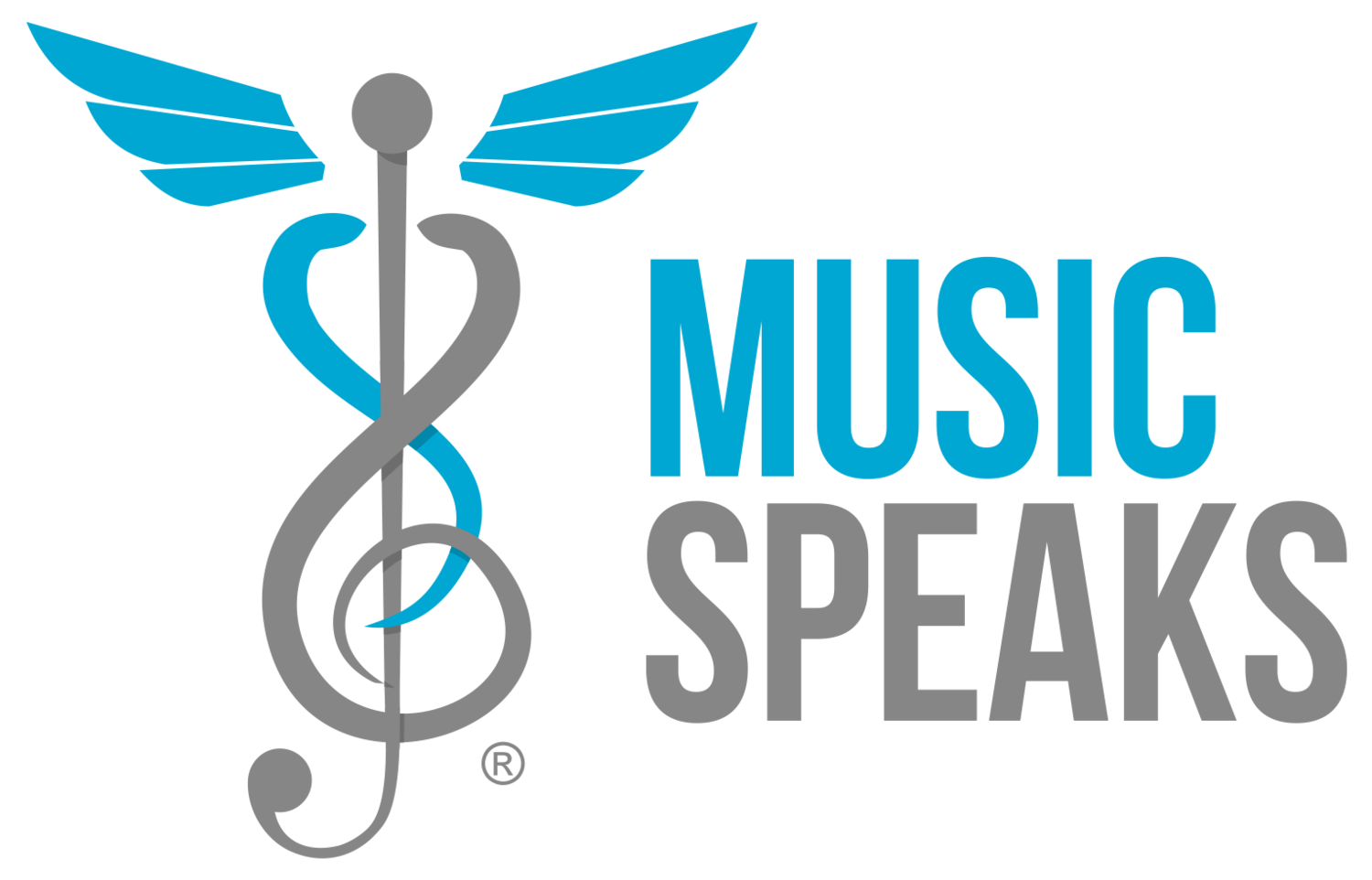Services through Music Speaks
At Music Speaks, our goal is to make quality music therapy accessible to anyone who can benefit from this service. Explore these pages to learn more about our services and how we work in collaboration with clients’ healthcare or development teams.
who can receive music therapy services?
Stephanie Johnson, MT-BC, works in a group setting with older adults.
Our team at Music Speaks often changes the “who can” in the question to “who should” receive music therapy services. Our board-certified music therapists serve a wide variety of clients with different needs and abilities, from inside the womb to the final breath of life, and every stage in-between.
Potential clients can be referred to music therapy services by anyone - guardians, nurses, teachers, ministers, doctors, counselors, and/or any member on a healthcare or development team. Before starting regular sessions with a potential client, Music Speaks will provide a comprehensive music therapy assessment to guide the decision on if that client will be a good fit for music therapy.
why would someone receive music therapy?
People are referred to music therapy for a variety of reasons, such as unmet goals in physical, cognitive, emotional, social, sensory, and spiritual areas. Music therapy can often be the missing puzzle piece when addressing a problem and/or finding a solution. Our therapists work in collaboration with a client’s healthcare team to see if music therapy is an appropriate treatment path.
Research shows that music has a unique way of interacting with the brain to achieve non-musical goals, and has a high impact in even the most sensitive environments: from premature babies in the NICU to older adults in the late stages of dementia.
how does music therapy help?
Maybe you’ve seen videos of an older adult who has a positive reaction to hearing music from when they were younger, or have heard about Representative Gabby Giffords’s recovery using music therapy. While uplifting someone’s mood and seeing a smile is a great side effect of music, our board-certified music therapists are trained to go further by digging deeper into the how and why of music’s interaction with the brain. They then implement research based music interventions to help the client reach clinical goals.
A client maintains the beat in-between jumps and spins as Brooke Moeller, MT-BC, gives directions on what action to do next.
Music Speaks music therapists always complete a music therapy assessment with each potential client prior to beginning services. If determined that music therapy is an appropriate treatment for the client, the therapist will develop a treatment plan in collaboration with the individual’s healthcare team using research-based music therapy interventions that work toward specifically assessed goals in areas of need such as physical, cognitive, emotional, social, sensory, spiritual, and more. Each session is documented to show the progress resulting from the interventions used. The therapist uses mostly live music in order to alter the elements of the music needed throughout the session to elicit a positive change. A person does not need any musical talent or previous musical knowledge to benefit from music therapy.
Where does a music therapist work?
A board-certified music therapist is able to work in a wide variety of settings and locations. All of our music therapists can meet clients wherever they are, whether in a residential home facility, a classroom, a hospital room, a community meeting room, or a private residence. The possibilities are endless! This flexibility makes access to quality music therapy all the more achievable.
For more information about the different populations we serve, and the benefits these clients can receive from music therapy services, please explore the page Populations. To read more questions and answers about music therapy, please click here.



